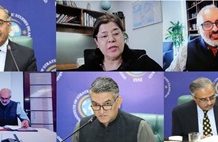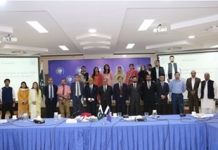Dr. Rasul Bakhsh Rais
Unanswered questions on Bajaur
The missile strike was just a reminder that the coalition forces would use such force in hot pursuit of the Taliban and against groups...
Simmering nationalism in Balochistan
Balochis and other ethnic groups have three issues with the Centre, which Islamabad can ignore only at the risk of national security. These are...
Problems of democratic transition
The big vacuum of credibility, trust, genuineness, true representation, and clean image, helps the military run the country with the political horses it can...
Next moves in Iraq
The United States needs to have an exit strategy, trim its ambitious goals of state- and nation-building and overcome the temptations of its 'uni-polar'...
NATO needs new strategy in Afghanistan
Afghanistan has also become divided along ethnic lines, and may face the same fate as Iraq if the US and NATO forces fail in...
Incredible line on Afghanistan
Pakistan's relationship with Afghanistan is strategically too important for stability and peace within Pakistan and in the region to be left to the private...
Revolutionary change
There are no shortcuts to personal success and absolutely none for nations like Pakistan. Progress depends on good ideas and a clear vision about...
A tale of two Punjabs
A very tiny minority in India or Pakistan would oppose the coming together of these two countries after the conflict and climate of hostility...
Popularising democracy
State and nation-building are key issues and fundamental challenges in all post-colonial societies. The problem is how to provide a legitimate foundation for rule...
Quest for civilian supremacy
Given the media coverage, debate and discussion over the appointment of the new army chief, General Raheel Sharif, it is apparent that this cannot...







